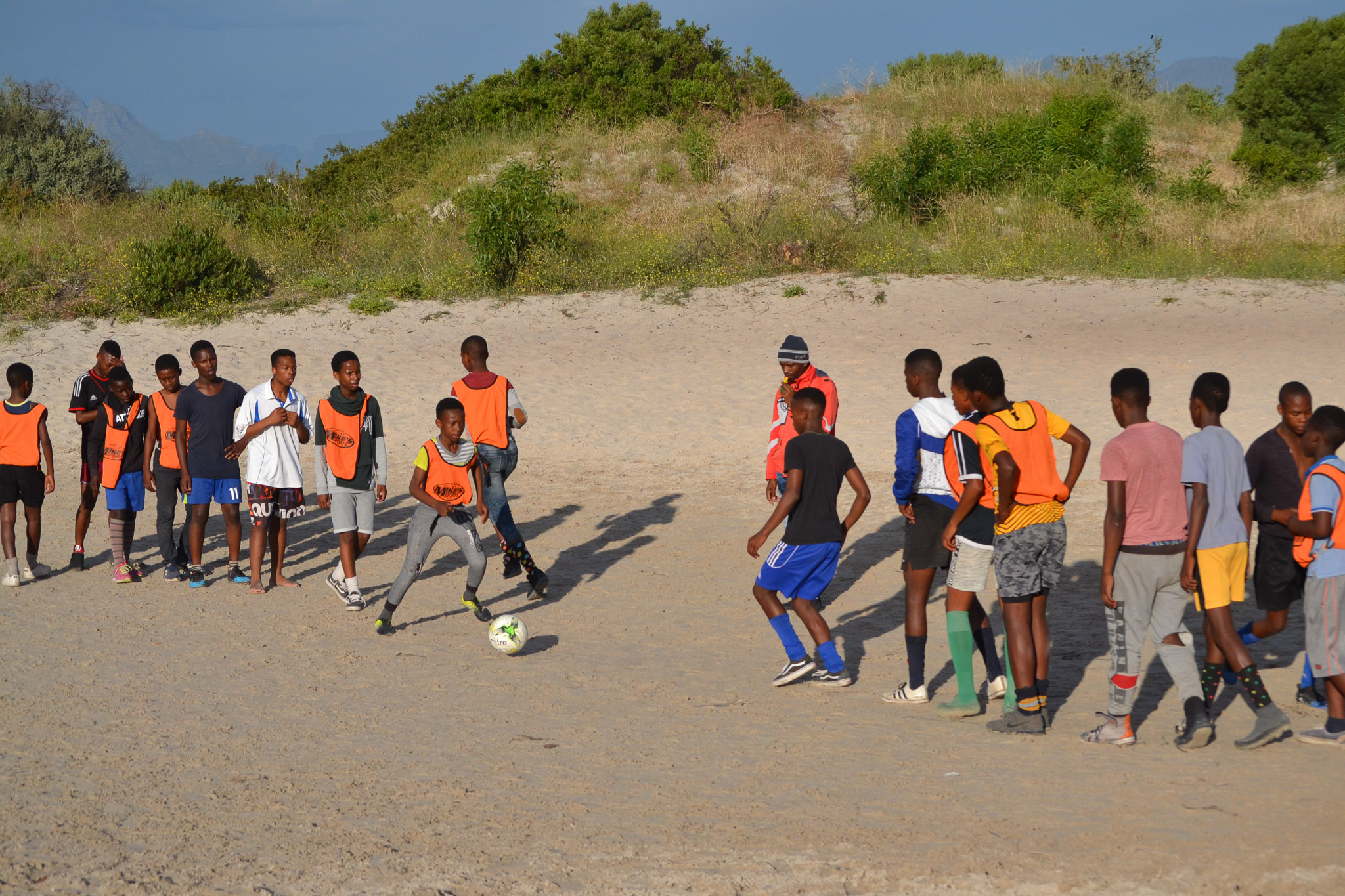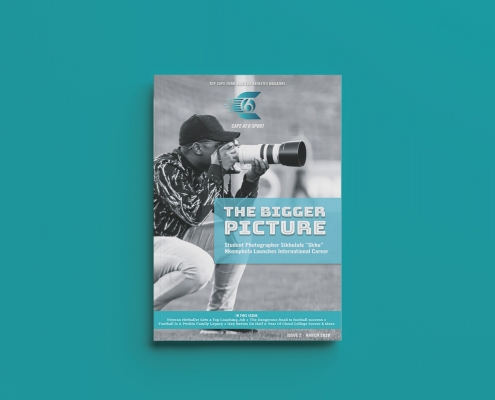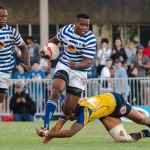It is illegal for pedestrians to walk or cross highways, but lack of facilities or even open spaces in disadvantaged communities in Cape Town is forcing up and coming footballers to cross the dangerous – all in pursuit of their dreams. Myolisi Gophe caught up with one of those clubs.
As Sibonile Tyityi leads a group of youngsters to negotiate crossing the busy N2 highway, speeding vehicles hoot and tyres screech on tar as visibly annoyed motorists slow down, swerve and even show them the middle finger.
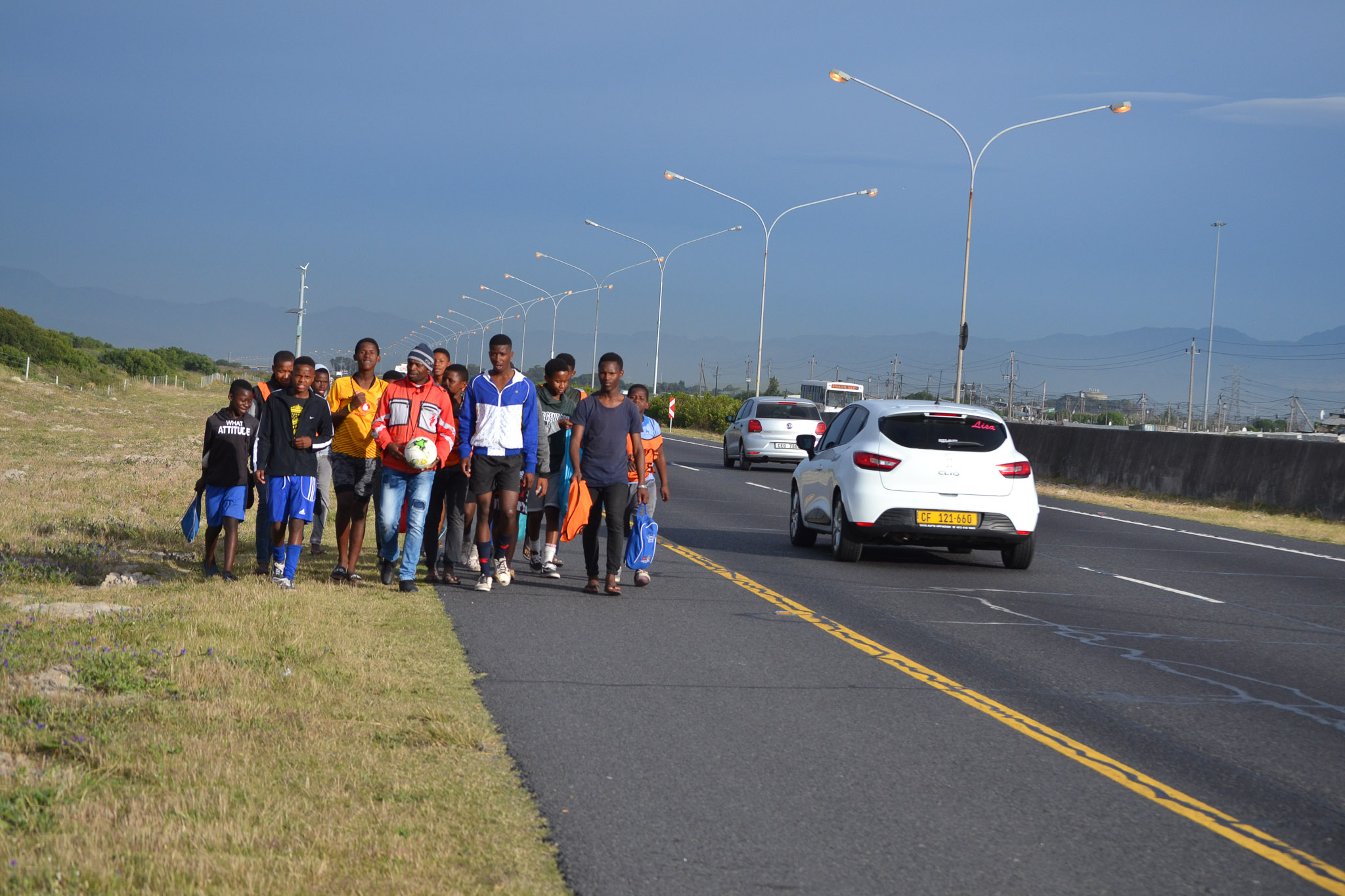
In the area they are crossing at near BM informal settlement in Khayelitsha, there is a road sign with a clear message: No Pedestrians Allowed. But the lack of an open space in his community of gives Tyityi and members of the TTACC United Football Club, some as young as nine, no choice but to cross the highway on a daily bases to look for a training space – putting their lives at huge risk.
“It’s very dangerous to cross this road,” Tyityi says. “Even their parents don’t like this. But they have to understand the situation, because I’m trying to help the community at the end of the day. We have no other options. There are no open spaces in our community.”
As we speak in November, Tyityi youngsters are still shocked – just last week, they witnessed a 10-year-old boy being crushed to death by a vehicle while trying to cross.
“After that accident, many players were so traumatised that they took a break from training for a few days,” Tyityi says. “But we have a tournament coming up this weekend, so we had to try to forget about the accident and move on.”
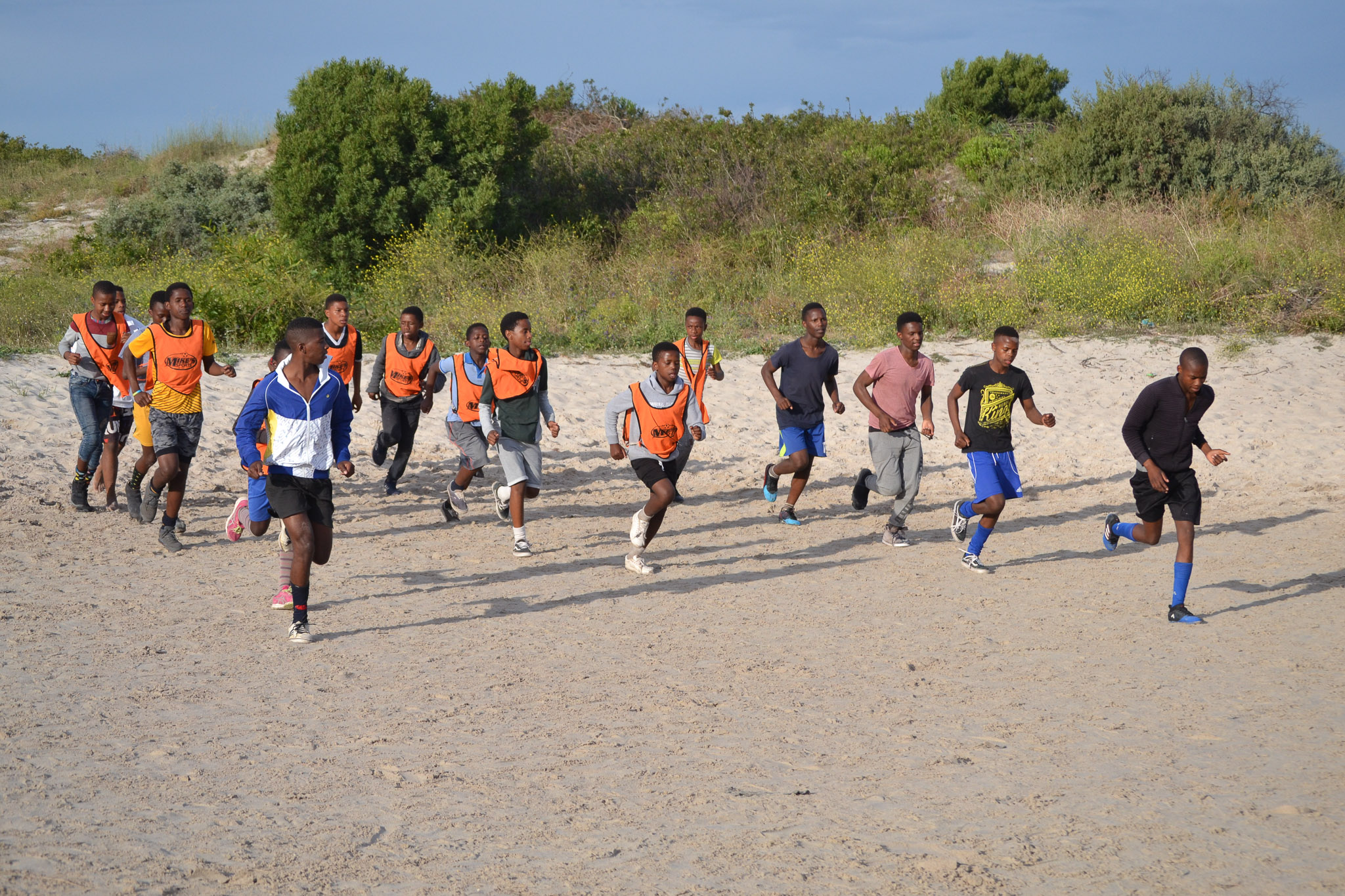
It wasn’t the first accident – and probably won’t be the last one either. “We have witnessed many bad things happening right in front of us. About a year ago, a BMW hit a small boy and dragged him for about 100 metres before it could stop. I was the first person to get to him and blood was oozing through his ears. He was declared dead on the scene.”
Tyityi said: “We can’t blame motorists because we are not supposed to cross this highway. Three of my players were issued with fines for illegal crossing by a traffic cop. It is very tough here”.
Training sessions are supposed to start at 17h00 – exactly peak hour traffic time for the highway – but sometimes they start 40 minutes late because of the high volume of vehicles on the road. “We have to wait until the volume of vehicles eases. Then I have to take five players at a time to cross because if we all cross at the same time mistakes can happen. They can trip and fall.”
TTACC United gets its name from The Twelve Apostolic Church in Christ, which Tyityi is a member of. It’s just one of the many football clubs from disadvantaged communities that can be seen using any open space they can find inside the residential areas or along the N2 from Gugulethu down to Khayelitsha.
“The main challenge is lack of training facilities in our communities. When we came here there were bushes and shrubs and we had to bring spades to clear the space. At the end of the day, we have to train so that these boys can follow their dreams in sports.”
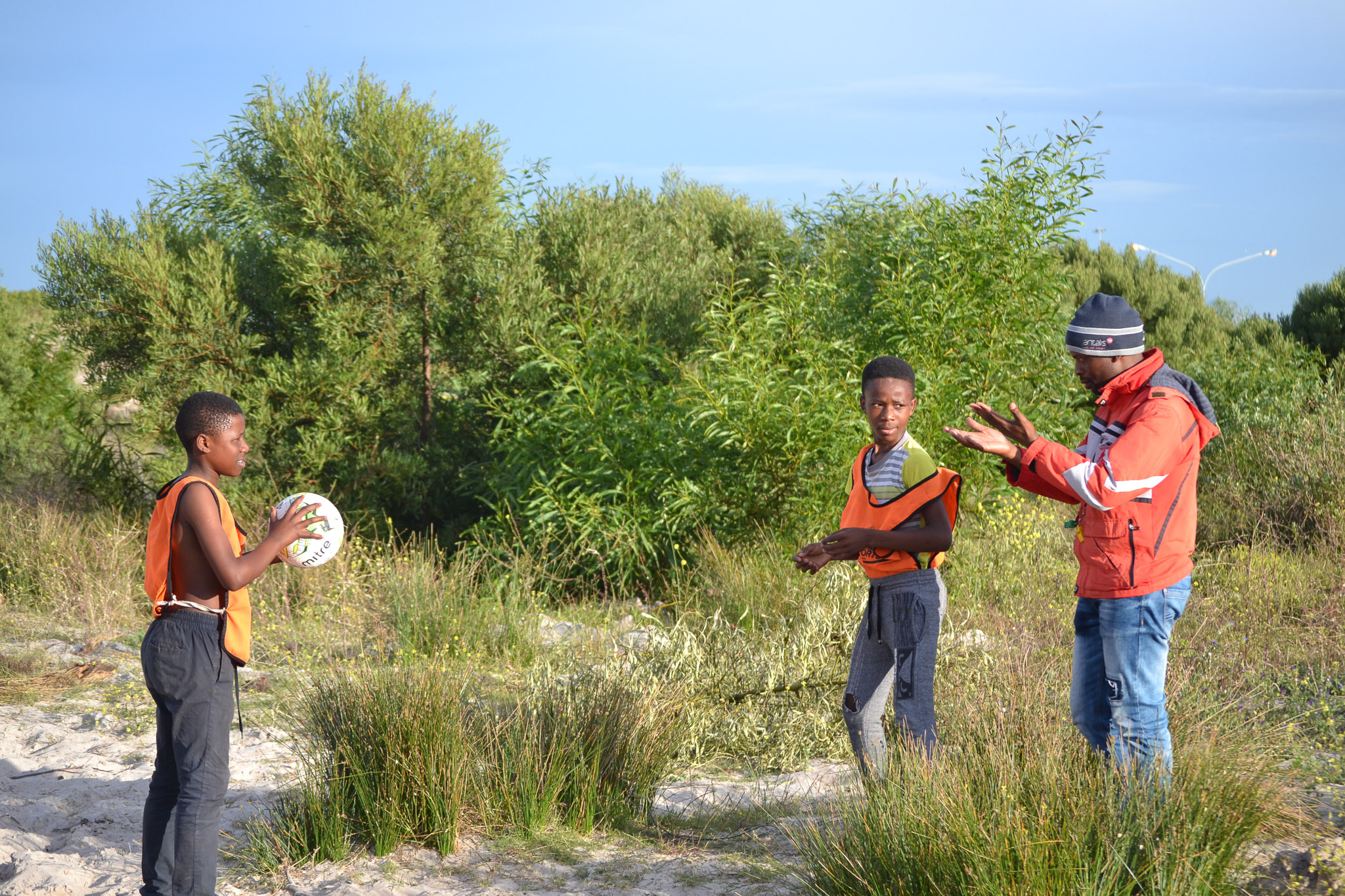
The Broader Perspective
Tini Mohau, President of the Khayelitsha Football Union made up of all five Local Football Associations in the area, agrees with Tyityi – notes that the problem is not new.
Clubs in black communities, he says, have always operated under a lack of adequate facilities “because we love football. And we think things will get batter. We think that City of Cape Town will look at the challenges, dangers and difficulties we work under.”
He knows the dangers firsthand.
“I used to train over the N2 highway as junior player. It once happened when one of my friends was knocked down there. Did we stop? No, we continued. Does the City see anything wrong about that? No. To the municipality this is normal, and we are mad to train there.”
There’s no choice, really.
“We don’t have facilities. Go to other communities you see the vast lands with grass that are not utilised. In townships small spaces are packed. You can see the apartheid legacy is still continuing. You would think our own local councillors would assist us. They have sport budgets every year, but you don’t know where it is going. The small spaces the councillors see put up parks. And they would tell you that their priority is housing, not sport.”
But that priority ignores some complications.
“With no facilities, gangsterism and drugs will prevail. In return we can help fight burglary and assist in coaching schools teams. But many schools are not willing to assist. For instance my own club got permission to use the grounds of a local primary. Last year they renovated the grounds. When they were finished they said we need to pay R1 000 a month to train there. Where will we get it?”
Those are the challenges force players to train along the N2 highway, he says.
“We are in trouble when it comes to training facilities in black communities. But we will continue and use any square metre that we can find to train football. And our kids will continue pursuing their football dreams.”
City Response: Rehabilitation and Recreation
Councillor Zahid Badroodien, Mayoral Committee Member for Community Services and Health, says the National Road and Transport Department is responsible for the open spaces that are a part of the road reserve along the N2 highway.
He notes that the City’s Recreation and Parks Department manages a combination of parks, sports fields, recreational centres and public open spaces across the metropole, many of which are within close proximity to informal settlements. “There are also Recreation and Parks Mobile Units that go into informal settlements and run recreational programmes. These mobile units create safe spaces for activities to take place in communities where there is no formal sporting infrastructure.”
The Department is also in the process of developing plans for sports infrastructure earmarked for Site B Stadium and Makhaza Sports Field, he adds.
About the poor state of the existing sports facilities, he notes that the Department is still in the roll-out phase of rehabilitation plans for grass at sports fields as a result of the drought. “Due to the severity of the drought, it will take time to completely restore sporting facilities to their pre-drought condition.”
Councillor Badroodien says vandalism is also an ongoing challenge at sports facilities. “There’ve been a number of incidents where perimeter fencing, rugby poles, seating and nets are stolen. Unfortunately, the Department is unable to address security risks through an increase in the number of security guards employed, due to the cost of private security.”
The Department regularly engages with Municipal Facility Management Committees (MFMCs) to discuss these challenges and how best to address them, Badroodien says.
“It is not advisable to keep repairing facilities that are continuously being vandalised,” he notes. “However, there is evidence to show that public facilities used frequently and which have a sense of community ownership, have fewer incidents of vandalism and anti-social behaviour. This is where communities play such a vital role in assisting the City in reporting acts of vandalism and destruction, which are a serious offence.”

